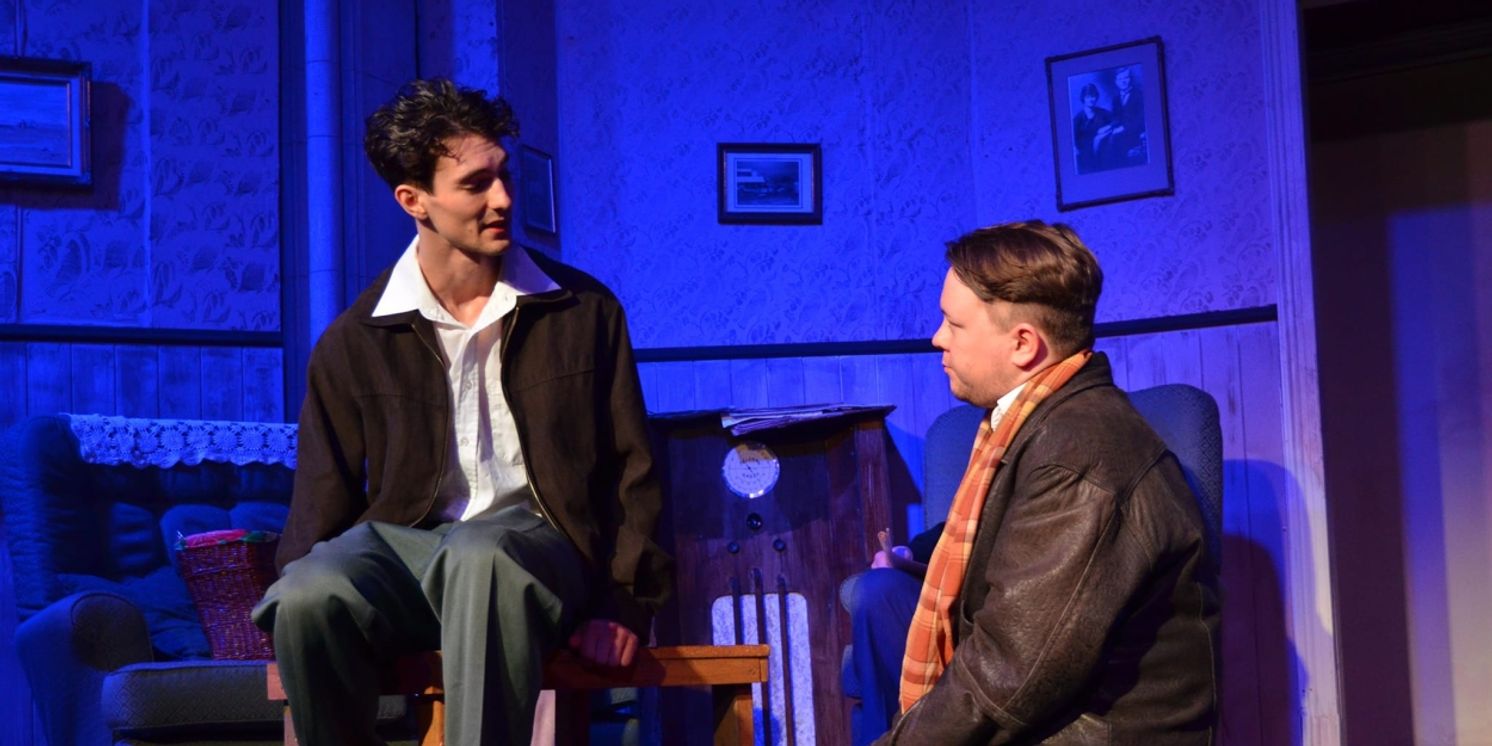Review: A HARD GOD at St Jude's Hall
Peter Kenna’s Australian classic.

Reviewed by Ewart Shaw, Saturday 9th November 2024.
Peter Kenna’s semi-autobiographical play, A Hard God, deserves its status as an Australian classic alongside Ray Lawler’s Summer of the Seventeenth Doll. Any doubts of its importance are banished by Harry Dewar’s production for the hardworking company of St Jude’s Players. Its historical location and time don’t affect the themes of love, honour, and commitment, as tender and touching today as ever.
The action takes place in 1946. The war is over, just. The Cassidy family were driven off their land by drought, leaving their mother buried in unconsecrated ground, and that’s important because they are Roman Catholic. It’s hard to grasp just how much power the church had over its believers. The Second Vatican Council wasn’t until the 1960s. The Mass was said in Latin. Dewar references this with a brief scene at the beginning of the Cassidys crushed in a pew. Two of the Cassidy brothers, Martin and Paddy are in the home of the oldest boy, Dan, and Lindsay Dunn brings a quiet strength to the role, as he has done to so many parts before. With his wife, Aggie, played with care by April Stuart, he attempts to give them a sense of home. Paddy became a bootmaker when they relocated. His wife, Sophie, the offstage voice of Rebecca Gardner, has basically abandoned him for a debauched career of gambling and drinking. Kings Cross was a great place in those days. Paddy is looking for direction. Martin is a failed businessman, having done time. Chris Dewar catches the bewilderment of a man whose role in society has been mangled. Jamie Black is absolutely amazing as Martin, physically and vocally convincing. He dominates the first act.
In the second act, still in the Cassidy’s living room, we meet his widow, Monica, Rebecca Gardner, in bright yellow, attempting to nail a crucifix to the wall. Paddy goes away with her, and returns to report that she’s a complete religious nutcase and now in care.
Counterpointing the adult lives is the second story, and the one that gives the play a greater importance in our theatre history. It’s the gay love story. Joe Cassidy is falling in love with his best mate, his only mate. Jack is nervy, brittle, and privileged. He leads Joe on and pushes him away. Whatever happened that weekend in Woy Woy we can only imagine.
When Jack punches Joe in the face, the relationship grows deeper and sadder. Lochie Daniels brings warmth to the role of Joe, and wanting to pick Jack up by the scruff of the neck and telling him to get a grip is a compliment to Archie Rowe for being insufferable.
Anna Siebert and Rosemary Taylor take credit for the costumes, but the set is another highly creditable effort by Don Oakley. Indeed, the support that the actors get from the rest of the company is a tribute to the hard work of the St Jude’s Players.
Dan’s headaches, of increasing severity throughout the play, are controlled with Bex powders. Containing aspirin, phenacetin and caffeine, ACP, they’ve been banned since 1979 but a cup of tea, a lie down, and a Bex, are still recommended for those difficult days.
Reader Reviews

Videos

